 W
WThe Bell System Science Series consists of nine television specials made for the AT&T Corporation that were originally broadcast in color between 1956 and 1964. Marcel LaFollette has described them as "specials that combined clever story lines, sophisticated animation, veteran character actors, films of natural phenomena, interviews with scientists, and precise explanation of scientific and technical concepts — all in the pursuit of better public understanding of science." Geoff Alexander and Rick Prelinger have described the films as "among the best known and remembered educational films ever made, and enthroning Dr. Frank Baxter, professor at the University of Southern California, as something of a legend as the omniscient king of academic science films hosts."
 W
WBLAST! is a feature-length documentary by Paul Devlin. The film follows a team of astrophysicists who launch a telescope, upon a high-altitude balloon from northern Sweden and again from Antarctica. The film follows the crew of scientists as they travel on a search to answer humankind's most basic question, how did we get here? An approach rarely seen in science programming, BLAST! de-emphasizes talking-head interviews and dispenses with anonymous narration in favor of capturing the action as it happens. Through dynamic storytelling, BLAST! reveals the human side of scientific pursuit, the personal sacrifices of scientists and the philosophical perspectives of discovering the origins of the universe.
 W
WBreak the Science Barrier is a 1996 television documentary written and presented by Richard Dawkins, which promotes the viewpoint that scientific endeavour is not only useful, but also intellectually stimulating and exciting. Featuring interviews with many well-known figures from the world of science and beyond, it was originally broadcast on Channel 4 in the United Kingdom — the first of a series of collaborations between Dawkins and the station — before being released on DVD more than a decade later. The documentary contains many of the themes later expounded in his book Unweaving the Rainbow, which was published two years after the initial broadcast.
 W
WA Brief History of Time is a 1991 biographical documentary film about the physicist Stephen Hawking, directed by Errol Morris. The title derives from Hawking's bestselling 1988 book A Brief History of Time, but, whereas the book is solely an explanation of cosmology, the film is, additionally, a biography of Hawking's life, featuring interviews with some of his family members and colleagues. The music is by frequent Morris collaborator Philip Glass.
 W
WBring Your Own Brigade is a 2021 American documentary film, written, directed, and produced by Lucy Walker. It follows the aftermath of the Camp Fire (2018), the deadliest and most destructive wildfire in California's history.
 W
WThe Cheese Mites (1903) is a British short silent documentary film, produced by Charles Urban and directed by F. Martin Duncan.
 W
WFire in the Blood is a 2013 documentary film by Dylan Mohan Gray depicting, what it claims is, the intentional obstruction of access to low-cost antiretroviral drugs used in the treatment of HIV/AIDS to people in Africa and other parts of the global south, driven by multinational pharmaceutical companies holding patent monopolies and various Western governments consistently supporting these companies. The film claims that the battle against, what it refers to as a "genocidal blockade", which it estimates to have resulted in no less than ten- to twelve million completely unnecessary deaths, was fought and won.
 W
WFLicKeR is a Canadian documentary film written and directed by Nik Sheehan, produced by Maureen Judge and Silva Basmajian (NFB). The film is based on the book Chapel of Extreme Experience by John G. Geiger about the work of artist Brion Gysin and his Dreamachine.
 W
WFlight of the Butterflies is a 2012 Canadian documentary film directed and co-written by Mike Slee for 3D IMAX, starring Megan Follows, Gordon Pinsent, and Shaun Benson. The film covers Dr. Fred Urquhart's nearly 40-year-long scientific investigation into the monarch butterfly, tracking the details of what is considered one of the longest known insect migrations: the flight of the monarch butterfly from Central Mexico to the United States and Canada and back.
 W
WA Glitch in the Matrix is a 2021 American documentary film directed by Rodney Ascher. The film had its world premiere at the Sundance Film Festival on January 31, 2021, and was released theatrically and on digital platforms on February 5, 2021 by Magnolia Pictures to generally positive reviews.
 W
WGrowing Up in the Universe was a series of lectures given by Richard Dawkins as part of the Royal Institution Christmas Lectures, in which he discussed the evolution of life in the universe.
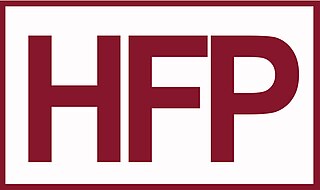 W
WHeritage Film Project is a film-production studio and film distribution company established in Charlottesville since 2010. It was founded by Eduardo Montes-Bradley and Soledad Liendo in 2008.
 W
WHjernevask ("Brainwash") is a Norwegian documentary miniseries about science that aired on NRK1 in 2010. The series, consisting of seven episodes, was created for NRK and presented by the comedian and sociologist Harald Eia.
 W
WJane is a 2017 American biographical documentary film directed and written by Brett Morgen about primatologist, ethologist, and anthropologist Jane Goodall.
 W
WNaturally Obsessed is a 2009 documentary film that opens a view on the training of scientists and the process of discovery. Shot over three years' time in the molecular biology laboratory of Dr. Lawrence Shapiro of the Columbia University Medical Center, the film chronicles how the tool of X-ray crystallography enables the discovery of the workings of the AMPK protein molecule, revealing a new path towards the treatment of diabetes and obesity.
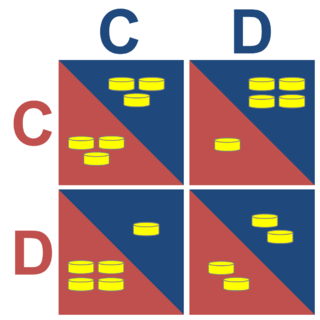 W
WNice Guys Finish First is a 1986 documentary by Richard Dawkins which discusses selfishness and cooperation, arguing that evolution often favors co-operative behaviour, and focusing especially on the tit for tat strategy of the prisoner's dilemma game. The film is approximately 45 minutes long and was produced by Jeremy Taylor.
 W
WParticle Fever is a 2013 American documentary film tracking the first round of experiments at the Large Hadron Collider (LHC) near Geneva, Switzerland. The film follows the experimental physicists at the European Organization for Nuclear Research (CERN) who run the experiments, as well as the theoretical physicists who attempt to provide a conceptual framework for the LHC's results. The film begins in 2008 with the first firing of the LHC and concludes in 2012 with the successful identification of the Higgs boson.
 W
WPoétique du cerveau is a 66-minute 2015 French-German-Israeli French-, Hebrew-, and Italian-language independent underground experimental documentary art film directed by Nurith Aviv.
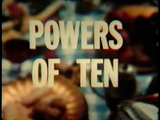 W
WThe Powers of Ten films are two short American documentary films written and directed by Charles and Ray Eames. Both works depict the relative scale of the Universe according to an order of magnitude based on a factor of ten, first expanding out from the Earth until the entire universe is surveyed, then reducing inward until a single atom and its quarks are observed. The first film: A Rough Sketch for a Proposed Film Dealing with the Powers of Ten and the Relative Size of Things in the Universe — was a prototype and was completed in 1968; the second film: Powers of Ten: A Film Dealing with the Relative Size of Things in the Universe and the Effect of Adding Another Zero — was completed in 1977.
 W
WResistance Fighters – The Global Antibiotics Crisis is a documentary film by the German director Michael Wech and producer Leopold Hoesch. It was broadcast on Arte on March 12, 2019 and had its international festival premiere at the Copenhagen International Documentary Festival (CPH:DOX) on March 24, 2019.
 W
WScientists Under Attack: Genetic Engineering in the Magnetic Field of Money is a 2009 German documentary film by Bertram Verhaag. It alleges that the biotechnology industry was implicit in ruining the careers of Árpád Pusztai and Ignacio Chapela when they published research critical of genetic engineering.
 W
WTerra Incognita: The Perils and Promise of Stem Cell Research, also known as Terra Incognita: Mapping Stem Cell Research, is a documentary film released by Kartemquin Films in 2007. The film follows Dr. Jack Kessler of Northwestern University in his search for a cure for spinal cord injuries using embryonic stem cells. When Kessler was invited to head up the Neurology Department at Northwestern, his focus was on using stem cells to help cure diabetes. However, soon after his move to Chicago, his daughter Allison – then age 15, was injured in a skiing accident and paralyzed from the waist down. In the moments following the accident, Dr. Kessler made the decision to change the focus of his research to begin looking for a cure for spinal cord injuries using embryonic stem cells.
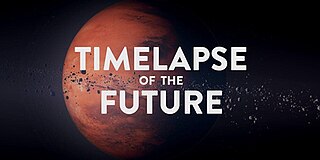 W
WTimelapse of the Future: A Journey to the End of Time is a 2019 short animated pseudo-documentary web film created by American astronomy-themed musician and filmmaker John D. Boswell, following Timelapse of the Entire Universe. The 29-minute film is a flowmotion— combination of a hyperlapse, time-lapse, and regular shots— of the universe from 2019 to the end of time, comprised with self-made and fair use footages films, the Internet, and speeches from scientists, with the lapse doubling every five seconds, using current knowledge, combining different hypotheses.
 W
WUnrest is a 2017 documentary film produced and directed by Jennifer Brea. The film tells the story of how Jennifer and her new husband faced an illness that struck Jennifer just before they married.
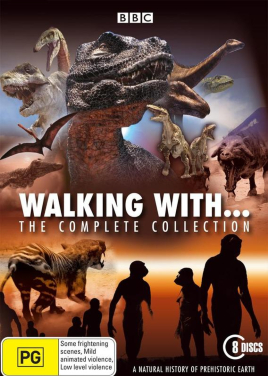 W
WWalking with..., also referred to as Walking with Prehistoric Life, is a media franchise created by Tim Haines and Jasper James centered on a collection of documentary series produced by the BBC and created by the independent production company Impossible Pictures. The series of documentaries began with Walking with Dinosaurs (1999), which was followed by four more series; Walking with Beasts (2001), Walking with Cavemen (2003), Sea Monsters (2003) and Walking with Monsters (2005).
 W
WYear Million is a six-part documentary and science fiction television series produced by National Geographic, which premiered on May 15, 2017, on their channel. The series received two Emmy Award nominations, including a Primetime Emmy for its narrator Laurence Fishburne. The series is based on the 2008 book Year Million: Science at the Far Edge of Knowledge by Damien Broderick. The narrative alternates between the years 2050, 3000, 500,000 and Year Million, using 2016 interviews to explain events unfolding in the story. The series was filmed in Budapest.